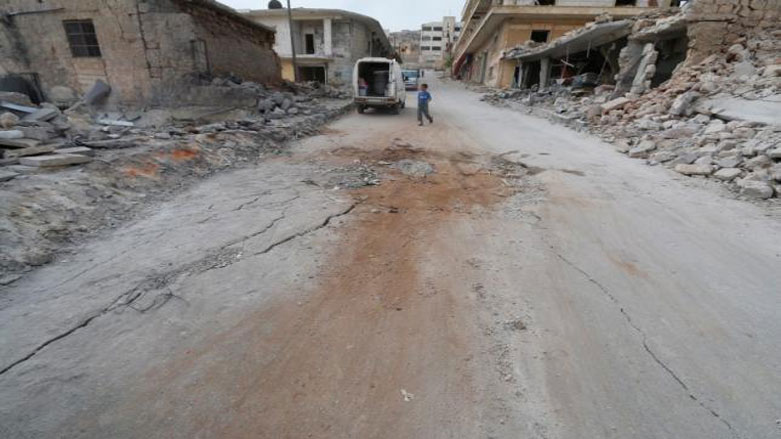U.S.-backed alliance advances against Islamist groups in Syria's north

BEIRUT/By John Davison (Reuters)
A U.S.-backed alliance of Syrian Kurdish and Arab fighters advanced against Islamist insurgents in the north of the country on Friday, capturing at least one village in Aleppo province, a spokesman and a monitoring group said.
Fighters from the Democratic Forces of Syria seized the village of Tanab near the town of Azaz after heavy clashes with the al Qaeda-linked Nusra Front and the powerful Ahrar al Sham, spokesman Talal Selo told Reuters.
"We liberated Tanab," he said.
Britain-based monitoring group the Syrian Observatory for Human Rights said the Democratic Forces of Syria had also captured the village of Tat Mrash. Selo said he could not yet confirm its capture.
It came just days after the alliance seized a dam from Islamic State further east, cutting one of its main supply routes across the Euphrates.
Since the U.S.-backed alliance was formed last October, its fighters have opened several major offensives against Islamic State with the ultimate goal of capturing Raqqa.
The alliance has separately been fighting in recent weeks against Nusra Front, Ahrar al Sham and other insurgents in northern Aleppo province.
The Democratic Forces of Syria includes the Kurdish YPG militia, which has been the most effective partner on the ground for U.S.-led air strikes.
Kurdish gains around Azaz, which is near the Turkish border, are also likely to increase concern in Turkey about growing Kurdish sway near the frontier. Ankara is fighting an insurgency against Kurdish PKK fighters in its southeast.
Washington's strategy in Syria shifted in 2015 from trying to train thousands of fighters outside the country to supplying groups headed by U.S.-vetted commanders.
The U.S. military estimates the Democratic Forces of Syria has captured around 1,000 square kilometers of terrain in the past six weeks or so, bolstered by coalition air strikes.
(Reporting by John Davison; Editing by Dominic Evans)
